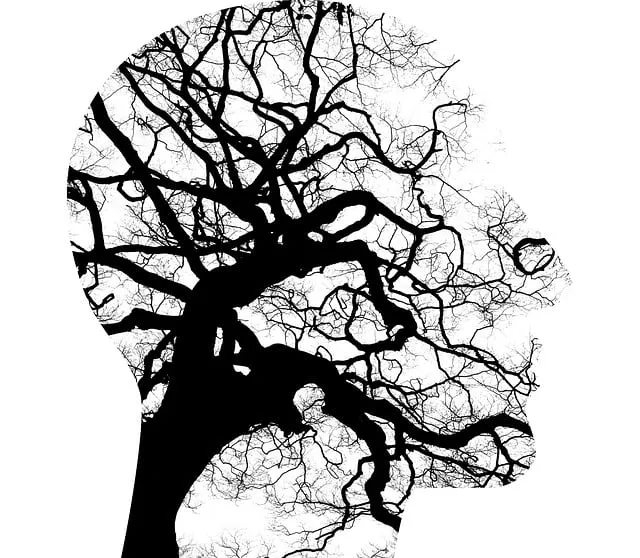Kaiser Permanente behavioral health services Wheat Ridge lead in mental wellness by offering evidence-based self-assessment tools that provide a comprehensive view of psychological well-being, integrating cultural sensitivity and risk assessment. These tools, developed through rigorous testing and collaboration, empower individuals to understand and manage their emotional states, enhance healthcare delivery, and foster organizational resilience. By prioritizing provider well-being, they set a model for other healthcare organizations aiming to improve mental health outcomes for diverse populations.
Mental wellness self-assessment tools play a pivotal role in empowering individuals to take charge of their mental health. This article explores the development, implementation, and evaluation of such tools, using Kaiser Permanente Behavioral Health Services Wheat Ridge as a case study. We delve into understanding the significance of these assessments, discuss effective tool creation for comprehensive mental health care, and emphasize user-centric design and accuracy in implementation. By examining real-world examples like Kaiser Permanente, we provide insights for developing robust mental wellness self-assessment tools.
- Understanding Mental Wellness Self-Assessment Tools
- Kaiser Permanente Behavioral Health Services Wheat Ridge: A Case Study
- Developing Effective Assessment Tools for Comprehensive Mental Health Care
- Implementation and Evaluation: Ensuring Accuracy and User-Centric Design
Understanding Mental Wellness Self-Assessment Tools

Mental wellness self-assessment tools play a pivotal role in empowering individuals to take charge of their emotional well-being. These tools, often designed by organizations like Kaiser Permanente behavioral health services Wheat Ridge, are tailored to help people gain insights into their mental health status and identify areas that may require support. By incorporating evidence-based methodologies, these assessments go beyond mere screening, offering a comprehensive understanding of an individual’s psychological landscape.
The development of such tools involves a careful balance between scientific rigor and cultural sensitivity in mental healthcare practice. Incorporating a risk assessment for mental health professionals ensures the accuracy and validity of the assessments while acknowledging the diverse emotional healing processes across various cultures. This nuanced approach, as promoted by Kaiser Permanente behavioral health services Wheat Ridge, allows for more personalized interventions, enhancing the overall effectiveness of mental wellness management.
Kaiser Permanente Behavioral Health Services Wheat Ridge: A Case Study

Kaiser Permanente Behavioral Health Services Wheat Ridge stands as a shining example of integrating mental wellness self-assessment tools into healthcare delivery. This innovative approach focuses on supporting not just physical health but also the emotional and psychological well-being of healthcare providers, a crucial aspect often overlooked in high-pressure environments like hospitals. By incorporating mental wellness assessments and burnout prevention strategies for healthcare providers, Kaiser Permanente has created a supportive ecosystem that enhances emotional intelligence within its workforce.
The case study highlights successful implementation of self-assessment tools tailored to identify early signs of stress, anxiety, or depression among staff members. These tools empower healthcare professionals to take proactive measures in maintaining their mental wellness, thereby improving patient care and overall organizational resilience. In a field where burnout is a persistent concern, Kaiser Permanente’s initiative serves as a model for other healthcare organizations aiming to prioritize and promote the well-being of their providers.
Developing Effective Assessment Tools for Comprehensive Mental Health Care

Developing effective mental wellness self-assessment tools is a critical component of comprehensive mental health care, as it allows individuals to gain valuable insights into their emotional well-being and identify areas that require support. Organizations like Kaiser Permanente behavioral health services in Wheat Ridge have recognized this need and invested in innovative assessment tools that go beyond traditional methods. These tools often incorporate evidence-based practices such as Compassion Cultivation Practices, which promote self-awareness and empathy, and consider Cultural Sensitivity in Mental Healthcare Practice to ensure inclusivity and accurate assessments for diverse populations.
By integrating these approaches into mental health education programs design, healthcare providers can offer more personalized care. Self-assessment tools that are sensitive to cultural contexts help bridge the gap between patient and provider, fostering open communication and trust. This, in turn, enables more effective intervention strategies and enhances overall mental wellness outcomes for individuals seeking support through Kaiser Permanente behavioral health services or similar healthcare organizations.
Implementation and Evaluation: Ensuring Accuracy and User-Centric Design

When developing mental wellness self-assessment tools, implementation and evaluation are paramount to ensure accuracy and user-centric design. At Kaiser Permanente behavioral health services Wheat Ridge, we prioritize rigorous testing and feedback integration. This involves administering prototypes to diverse groups and gathering qualitative and quantitative data to validate the tool’s effectiveness and reliability. By comparing assessment outcomes with established benchmarks and industry standards, we can assure the tool accurately reflects users’ mental wellness states.
Furthermore, a user-centric design approach is essential. We collaborate closely with individuals from various backgrounds to understand their unique perspectives and needs. Incorporating feedback on language clarity, accessibility features, and intuitive navigation ensures the tool is inclusive and usable by all. This iterative process not only enhances the assessment’s accuracy but also fosters trust and engagement, making it more likely for users to adopt and benefit from self-monitoring practices, such as those promoted through Stress Management Workshops Organization, Positive Thinking, and Social Skills Training initiatives.
Mental wellness self-assessment tools play a pivotal role in enhancing access to mental healthcare, as exemplified by the successful implementation of Kaiser Permanente Behavioral Health Services Wheat Ridge’s innovative approach. By developing comprehensive assessment tools, we can facilitate early detection and intervention for various mental health conditions. Ensuring these tools are user-centric and meticulously evaluated for accuracy is essential to foster trust and encourage individuals to seek support actively. Leveraging such resources in both clinical settings and online platforms has the potential to significantly improve overall mental wellness outcomes.






